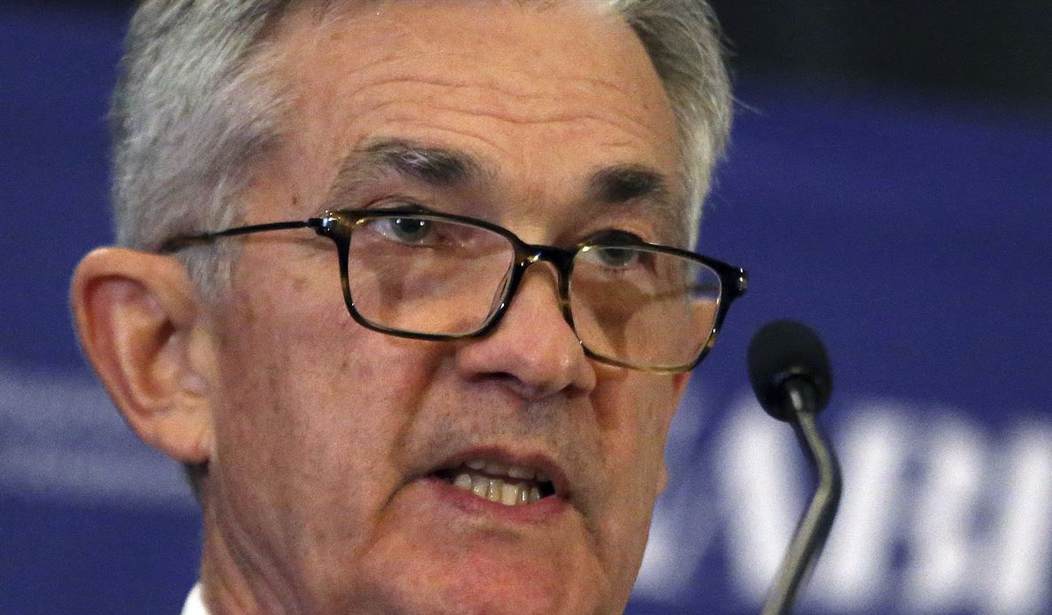Is inflation really under control, as Joe Biden has repeatedly claimed? Jerome Powell doesn’t think so, and as he told Congress yesterday, neither does the board of the Federal Reserve. In fact, as Powell testified, inflation appears to have accelerated again, despite Biden’s claims and their own predictions.
As a result, Powell warned, the Fed will accelerate its own counter-inflation strategy of monetary interventions. And that will almost certainly result in a recession that Powell and the Fed hoped to avoid with a more surgical approach to interest-rate hikes:
The WSJ calls this “a notable shift in tactics“:
Federal Reserve Chair Jerome Powell returns to Capitol Hill on Wednesday for a second day of testimony after he told lawmakers Tuesday that the central bank would consider raising interest rates by a larger half-percentage-point later this month.
Mr. Powell also told a Senate committee on Tuesday that Fed officials were likely to lift rates higher this year than previously expected to bring inflation under control. In December, most of them thought they would raise their benchmark federal-funds rate this year to between 5% and 5.5% and hold it there into 2024. …
His comments Tuesday laid the groundwork for a notable shift in tactics to reduce price pressures. He said hotter inflation and hiring could lead central bank officials to alter their recently adopted strategy of raising rates in smaller quarter-point increments.
“The latest economic data have come in stronger than expected, which suggests that the ultimate level of interest rates is likely to be higher than previously anticipated,” Mr. Powell told the Senate Banking Committee. “If the totality of the data were to indicate that faster tightening is warranted, we would be prepared to increase the pace of rate hikes.”
“Totality” covers a lot of ground. Primarily, the Fed will be looking at the PCE price iundex, which heated up last month by 0.6% month-on-month in January, it’s biggest spike in four months. That went along with other inflation index rises for January and confirmed that the rate hikes thus far had not tamped down demand.
The other indices that Powell and the Fed will watch closely are employment reports. The BLS report for February will come out on Friday, but the January report also may have spooked the Fed. Thanks largely to massive annual adjustments to BLS baselines, the data showed a massive addition of jobs in January, well over 500,000. ADP’s data, which is not always or even often predictive, suggested a much smaller gain in the private sector of 106,000. However, their new report out this morning shows close to a quarter-million jobs added in February — along with a “modest slowdown” in wage growth:
Private sector employment increased by 242,000 jobs in February and annual pay was up 7.2 percent year-over-year, according to the February ADP® National Employment ReportTM produced by the ADP Research Institute® in collaboration with the Stanford Digital Economy Lab (“Stanford Lab”).
The jobs report and pay insights use ADP’s fine-grained anonymized and aggregated payroll data of over 25 million U.S. employees to provide a representative picture of the labor market. The report details the current month’s total private employment change, and weekly job data from the previous month. ADP’s pay measure uniquely captures the earnings of a cohort of almost 10 million employees over a 12-month period.
“There is a tradeoff in the labor market right now,” said Nela Richardson, chief economist, ADP. “We’re seeing robust hiring, which is good for the economy and workers, but pay growth is still quite elevated. The modest slowdown in pay increases, on its own, is unlikely to drive down inflation rapidly in the near-term.”
What should we expect to see on Friday? February’s report may end up correcting the big statistical mirage, but perhaps only in a revision rather than the topline. As I noted earlier, ADP’s reports are not terribly useful as a predictor of BLS outcomes. However, we’re very likely to see some substantial growth in February, which will increase pressure on Powell and the Fed to act on inflation — and this time stick to it.
Of course, some of this could be avoided if Congress and the Biden administration revamped its regulatory and tax policies to apply supply-side economics and expand production. Since that won’t happen under Joe Biden, it’s all on Powell to continue the interest-rate-hike beatings until morale declines. Strap in, everyone.








Join the conversation as a VIP Member